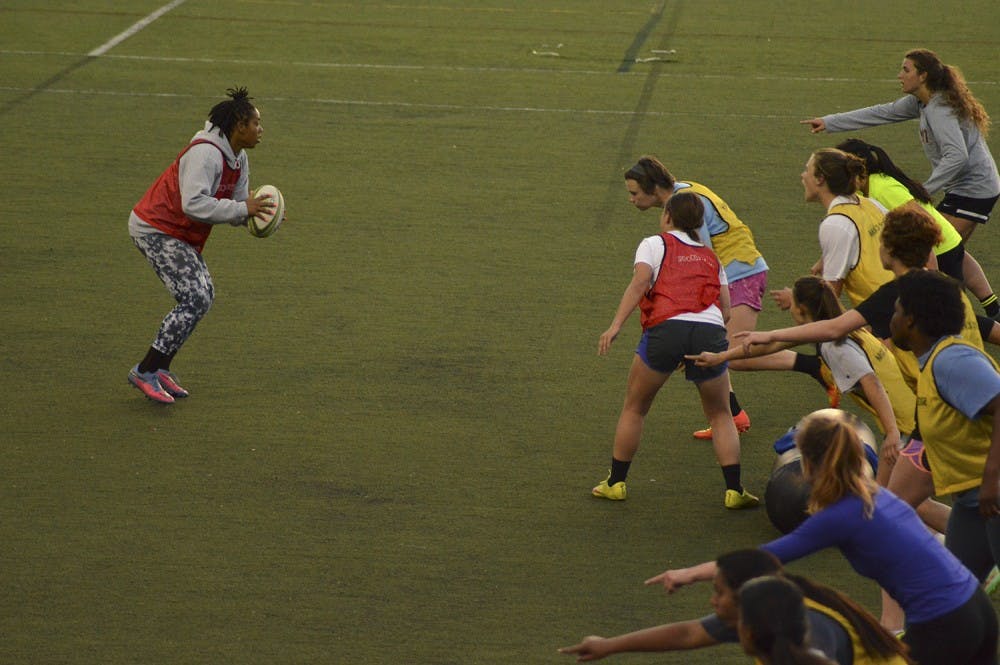Long before she took office as the president of UNC’s club women’s rugby team, senior Lindsey Oliver was attracted to the sport for its uniqueness relative to other team competitions.
Oliver said the physicality of rugby is unlike most women’s sports, and the opportunity for organized aggression enticed her. But while she was initially drawn to what made the sport different, she was impressed by what was kept the same.
“One of the things I really like about rugby is that the rules for the men’s and the women’s game are exactly the same,” Oliver said.
“So it’s the same amount of tackling, the same amount of hitting, the same ball size and field size. It’s different in the way fans view it and sometimes can be different in the way refs treat it, but generally it’s the same.”
Oliver’s point about equality for men and women in pay and status is one that organized sports as a whole have yet to answer.
The latest iteration of this debate is currently being waged by members of the U.S. Women’s National Soccer Team, including standouts Carli Lloyd, Hope Solo and Alex Morgan, who filed a federal complaint against U.S. Soccer citing wage discrimination in late March.
Although the concept of co-ed professional sports is an unlikely future, gender neutral sports are alive and well on college campuses in club and intramural programs. One such team at UNC is the co-ed club field hockey squad.
Junior Cameron Hardie was introduced to field hockey while attending high school in the United Kingdom and decided to pursue the sport in Chapel Hill. The sport is predominantly played by women in the United States but is a popular sport for men and women internationally.
Hardie said the club team is composed mostly of international male players and American female players. He said though his teammates came to the sport through different channels, this distinction actually benefits the team.



